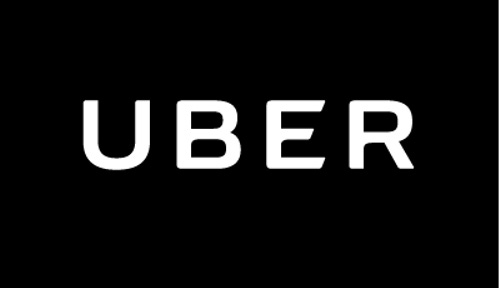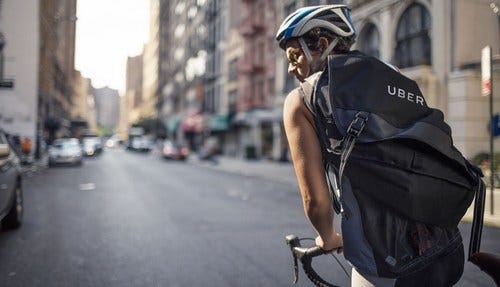Embracing the Sharing Economy: Connecting Africa Interviews Uber's Mipe OkunseindeEmbracing the Sharing Economy: Connecting Africa Interviews Uber's Mipe Okunseinde
Mipe Okunseinde, Partner Engagement Lead (Sub-Saharan Africa) at Uber explains why the company's future is as much in logistics as in basic transportation.

With Nigeria Com 2017 now over, Connecting Africa is looking back at the event and continuing to profile some of Nigeria's most influential and innovative figures in the technology and telecoms sector.
We caught up with Mipe Okunseinde, Partner Engagement Lead (Sub-Saharan Africa) for Uber, to discuss the advantages of digital disruption and the sharing economy, and how Uber has utilised these strategies to attain success.
Connecting Africa: Since Uber's launch in Nigeria in 2014, have there been any major differences in how it operates there compared to how it operates in Cape Town? Were there any differences in the roll out plan?
Mipe Okunseinde: Each city is unique. Drivers across the continent are excited about what Uber has to offer. It's not just about creating economic opportunities for individuals but about helping drivers build their small businesses with strong local teams -- these 'small businesses' can grow to be extremely successful.
We are really excited about the opportunities in Lagos and Abuja -- there is so much potential in this country and the rest of Africa. The uptake since we launched in Nigeria has been amazing -- riders and drivers are loving having another choice on how to move around their city. Uber has enabled over 1,000 economic opportunities since launching in Nigeria and provided them with the tools to build their own small businesses.
Around 60,000 drivers now use Uber across Africa -- that's the equivalent of enabling 54 small business opportunities every day since we started. We believe we can do more.
Connecting Africa: At Nigeria.Com, you delivered a presentation on Digital Disruption and the Sharing Economy. How has Uber played a role here?
Mipe Okunseinde: The power of technology and collaboration is vital in building the transport systems of the future by enabling more efficient cities. Uber has applied the philosophy of the sharing economy to the transport industry, in the form of ride-sharing. Driver-partners are able to access the app and offer many riders a ride in the same day – essentially, having several people 'sharing' one car instead of compounding traffic problems by driving their own cars.
This has been used successfully in cities across the world, effectively reducing congestion and environmental impact in the process. Making use of resources already at our disposal is a ground-breaking way to relieve pressure off a city's infrastructure, while helping its inhabitants to live more efficiently, sustainably and affordably.
Carpooling: The flood of cars on our roads is a global challenge, a challenge that is not unique to Africa, which also has very congested cities. Cities in Egypt, South Africa and Kenya are suffering suffocating traffic, yet there are comparatively few cars on the continent's roads yet.
However, there are exciting solutions, such as using private cars for public good. With many cars sitting idle, we clearly have to find a better way to move around our cities. Here the collaborative or 'sharing' economy -- like car-sharing and carpooling -- can help solve these problems by getting more people in fewer cars.
Carpooling is a hard problem. To organise a successful carpool, you have to find a group of people who live near you, who also work near you, who also leave for work at the same time, and who also come home from work at the same time. At Uber, we ran the numbers, and it turns out that you would have to contact 6,000 people to make that kind of connection.
This is where technology can help. Two years ago, we noticed that in San Francisco, tens of thousands of people were going in the same direction at the same time. We realised that carpooling could be a solution -- coordinating supply, demand, time and location simultaneously.
Passengers would benefit from carpooling because they would split the fare. That would mean more people could afford to travel together, rather than covering the cost alone and drivers would have less down time between trips. And for cities, carpooling would mean less traffic, less congestion and less pollution over time.
Connecting Africa: Uber is continually improving and expanding, are there any new tech innovations on the horizon with which Uber might experiment?
Mipe Okunseinde: We are a technology company best known for our app that connects riders to drivers, but also a company that can, due to our technology, experiment with products like UberEATS and UberRUSH, which move things rather than people around a city. Uber's future is in logistics, not just basic transportation.

Apart from the innovative ideas already seen from Uber in Africa, products like UberPOOL or UberHOP are set to help Africa move even better. Using technology, it is quick and easy for people heading in the same direction at the same time to share their journey. UberPOOL is carpooling at the press of a button. UberPOOL in Africa could allow people going in the same direction the opportunity to share the ride, as well as the cost, which can get more people into fewer cars and tackle congestion and pollution over time.
We are currently testing Uber Movement in various cities around the world -- Johannesburg is a priority city. Uber Movement is a new website that will help urban planners, city leaders, third parties and the public to better understand the transportation needs of cities.
Uber is constantly exploring options of where to go next -- watch this space.
Connecting Africa: Are there any specific challenges that Uber has faced in Nigeria? If so, how have the challenges been overcome?
Mipe Okunseinde: There are always challenges when launching a new city -- GPS and mapping, traffic congestion, ensuring there is enough supply to meet the demands -- but we are working hard every day to ensure we can connect riders and drivers to a seamless experience.
Connecting Africa: What impact is Uber having on the local communities in Nigeria?
Mipe Okunseinde: Uber cares about the communities in which it operates in. For example, following the devastating destruction of the Nuli Juice store in Ikoyi on 8 September, 2016, in Lagos, Uber assisted Nuli by delivering Nuli juice to help the brand continue with operations.
Another great example is a campaign that will be launched in the coming weeks called UberWater. Sadly, only 51% of the population of SSA [Sub-Saharan Africa] has immediate access to safe water and 45% to sanitation. Which is why this campaign is so important, as it will be focused on educating riders about our water crisis. For every ride taken, Uber will help get clean water closer and closer to where it's needed most -- a better reason to ride.
Uber also hopes to assist with general congestions. Uber believes it can help reduce congestion by complementing public transit. Over time as people get used to the idea that you can always push a button and get a ride, the need to own a car, or buy a second family car, goes down. Although there is still more research to be done, fewer cars on the road can mean fewer emissions, less congestion and less time wasted sitting in traffic.
The impact Uber has on the city of Lagos and Abuja is no doubt a positive and encouraging one. We have helped provide more choice to people on how they move around their cities and have increased the economic opportunities for the people of Lagos and Abuja. By offering a friendly and reliable complement to existing transport options, we have given both passengers and drivers choice and more opportunities for drivers to start and grow their small businesses, thereby improving urban mobility for the residents of Lagos and Abuja.
Connecting Africa: What is your overall message for the Connecting Africa community?
Mipe Okunseinde: We see a future of cities and citizens that have a need for reliable transportation.
We started in 2009 to solve a simple problem -- how do you get a ride at the touch of a button? Eight years and over 2 billion trips later, we've started tackling an even greater challenge: Reducing congestion and pollution in our cities by getting more people into fewer cars. The Uber network is now available in more than 600 cities in over 80 countries spanning six continents.
Uber has also created thousands of economic opportunities in Nigeria and across the continent. However, it is not just about creating economic opportunities for individuals, it's about helping drivers build their small businesses.
By using technology to get more people into fewer cars, Uber can help turn every journey into a shared journey -- reducing congestion and pollution and the need for parking in cities globally.

Up next from Connecting Africa: AfricaCom (7-9 November, Cape Town). Find out more about the continent's largest technology and telecommunications event here.
Attendees are able to access 450 exhibitors and a range of free AfricaCom content by signing up for a free visitor's pass here.
Gain unrivalled access to everything AfricaCom has to offer, including the AFEST music festival by purchasing a delegate pass here.
Be part of the African tech and telco conversation here:
Twitter
Facebook
LinkedIn
Instagram
— Rachael McKie, Connecting Africa Writer
.jpg?width=100&auto=webp&quality=80&disable=upscale)
.jpg?width=400&auto=webp&quality=80&disable=upscale)

.jpg?width=700&auto=webp&quality=80&disable=upscale)
_(1).jpg?width=700&auto=webp&quality=80&disable=upscale)
_(1)_(1).jpg?width=700&auto=webp&quality=80&disable=upscale)
.jpg?width=700&auto=webp&quality=80&disable=upscale)
.jpg?width=700&auto=webp&quality=80&disable=upscale)
.jpg?width=700&auto=webp&quality=80&disable=upscale)
.jpg?width=700&auto=webp&quality=80&disable=upscale)
.jpg?width=800&auto=webp&quality=80&disable=upscale)


.jpg?width=700&auto=webp&quality=80&disable=upscale)
